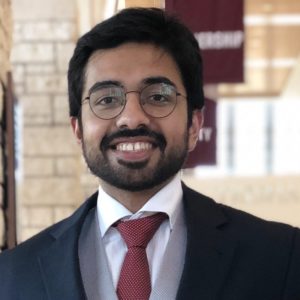
Member Morpheus Lab, 2018–present
Zaryab moved to the US for the graduate school after finishing his Bachelor of Science from GIKI. As an undergraduate, he worked on multiple projects including designing and fabricating CNC turning machine for small scale businesses, CFD analysis of de Laval nozzle and performed analysis on high and low speed car suspension configurations. During his master’s program, Zaryab did research in the cutting edge field of Soft Robotics at BioRobotics Lab, TAMU. He designed, modelled, fabricated, and validated a soft composite finger with tunable joint stiffness. The composite finger, made from two types of silicone, has hybrid actuation (tendon and pneumatic) to control the finger shape in a prescribed direction and stiffen the joints. The stiffness control can tune the structural softness of the finger which leads to firm grasp during higher acceleration object manipulation.
Title: Structural Panel for Adaptive Acoustics Control of Emissions (SPAACE)
Zaryab joined Morpheus Lab in 2018 after finishing his Master of Science from Texas A&M University. In his research at Morpheus Lab, he challenged the concept of static and centralized built environments by developing adaptive panels to control the room acoustics. These panels have intelligent physical dynamic surface which are responsive and reconfigurable for tuning the acoustic properties. This research would lead to a paradigm shift in designing and constructing infrastructures for the future, and revamping architectural requirements for indoor living spaces.
Zaryab’s objectives as an engineering professional are to develop an adaptive panel to control room acoustics using smart actuators. This panel can be used to control the acoustic properties of classrooms, senior houses, opera houses, concert halls and libraries, etc. In addition, as noise is the most prevalent and associated with communication deficiency for children suffering with ASD, these panels can be used to improve their communication and learning disability.